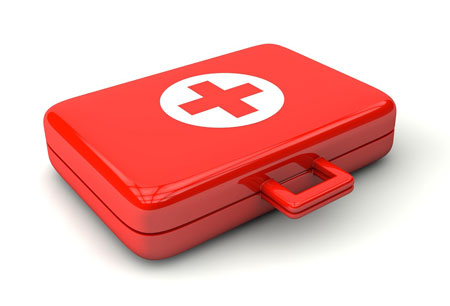Leadership Tips
- Enlightening
- Informative
- Thought-provoking
- Scientifically researched and data-driven
- Pragmatic and useful
- Pertinent and impactful
Quick tension-busters: Your stress first aid kit

In English, we often say that "Every cloud has a silver lining," "Everything happens for a reason," or "It's a blessing in disguise." Filipinos believe that "Pitch darkness is followed by dawn," and "When everything is going wrong, try to do everything right." Czechs advise that "There is something good in everything bad," while old, Italian grandmothers assure their grandchildren that "Not all evil is to harm." All cultures have their own words of wisdom on how to deal with stress, but it all comes down to the same, basic premise: There is a lesson to be learned in even the most difficult situations. We may not see the lesson when we're in the midst of experiencing something stressful, but when we look back, we can see the benefits of going through the hardship"Žif only just to learn how to avoid going through it again.
If you're feelings stressed, here are some quicks tips to relieve the pressure:
The Silver Lining Exercise
No matter how tough a situation is, there is always some wisdom to be gleaned from it. For each stressor below, try to come up with at least one lesson that can be learned. We've provided some examples to get you started.
-
You receive a less-than-stellar performance review on a project that you put a great deal of work into.
Silver lining: At least I learned what I did wrong, and what I can do better next time.
-
Halfway through a project, your client decides he wants something completely different.
Silver lining: All is not lost. I can use the content I worked on for another project/client.
- A deadline for a project has just been moved up to an earlier date, requiring a great deal of overtime.
- The new person who has been added to your team is very critical during brainstorming meetings.
- The promotion you were working towards is given to a less experienced colleague.
If you find your work day getting a little hectic to the point where you can almost feel your blood pressure rising, check out the tips below. Print them up and put them in place where you can access them easily. Keep in mind that coping techniques are easier to implement (and tend to be more effective) when you use them in the initial stages of the stress response. Don't allow your stress level to get too high - nip the problem in the bud!
Tips to reduce the physical impact of stress:
- Remove yourself from the stressful situation. Take a 5 to 10 minute break and go outside, or any place where you can be alone for a few moments.
- Have a cup of tea, preferably one that contains calming elements, like chamomile, lavender, or peppermint.
- Take slow, deep breathes.
- Shrug your shoulders. It will release tension in your back, neck, and head.
- Do some quick yoga stretches or tai chi exercises.
- Don't self-medicate. Cigarettes or comfort food are crutches, not solutions.
Tips to reduce the physical cognitive impact of stress:
- Always be aware of your triggers. If morning traffic frustrates you to no end, leave earlier or take public transportation.
- Be aware of distorted beliefs and reframe them ("I will never get over this" vs. "This may take time to get over, but it will bother me less with time.").
- Curb negative thinking. Sing a song, listen to music, or engage in a mental exercise that will occupy your thoughts, like a crossword puzzle.
- Meditate, even if it's only for a few moments. Repeat calming words like "tranquility" or "serenity".
- Visualize something positive and relaxing: Like relaxing on a beach, or someone you love.
- Put things in perspective. Will this issue matter to you next week, next month, next year?
Tips to reduce the emotional impact of stress:
- Find something to make you laugh. Read jokes online or watch funny videos.
- If possible, use aromatherapy at work. A lavender oil dispenser can do wonders.
- Reward yourself with something special. Buy yourself flowers, a new gadget, or a pair of sunglasses.
- Practice self-forgiveness. Even if you made what you consider a stupid mistake, it is a lesson learned.
- Seek out the company of positive people.
- Do a good deed. Altruism releases endorphins.
- Remind yourself that all emotions are transient and fade with time.
Actions to take to take to make your day less stressful:
- Ask for help or delegate some of your tasks. Do not over-burden yourself.
- Learn to say "no." If accepting someone's request really inconveniences you, turn it down.
- De-clutter your desk. It will help you regain some sense of control.
- Reach out to others. Simply talking about a problem can help you feel better.